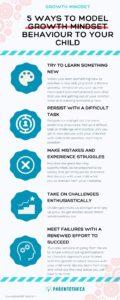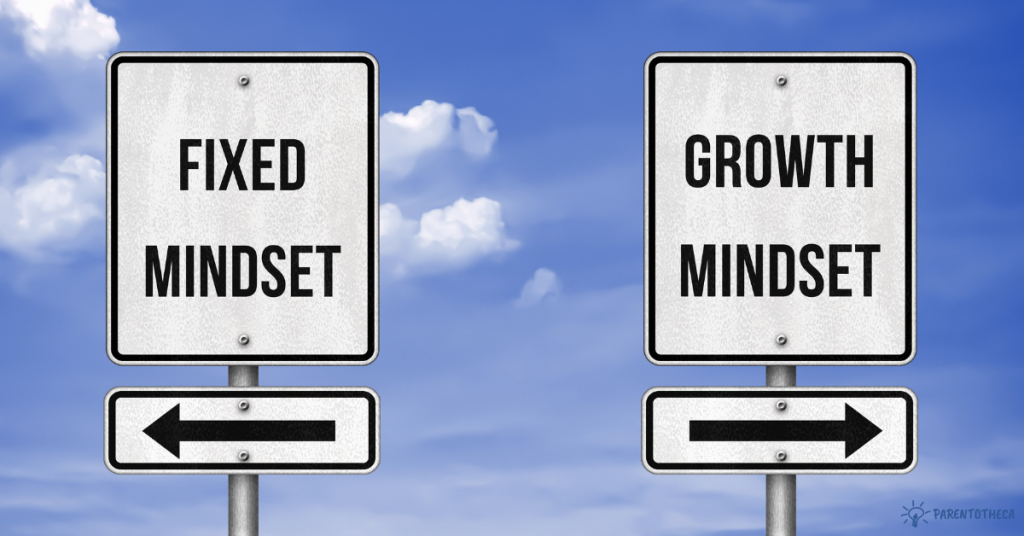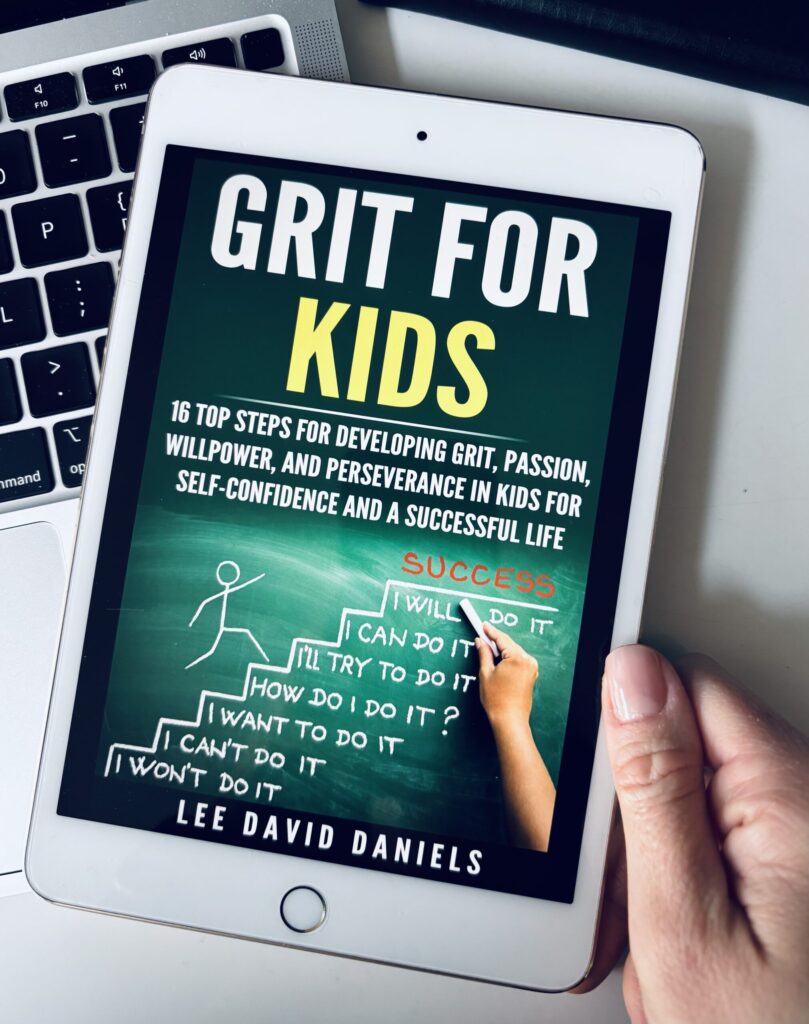As parents we all want the best for our children. And we are genuinely committed to teaching them everything they need to be happy and successful in life.
You can teach your child many different things (and many of them would be useful in life). But. What does actually predict success? Researchers from Stanford University have an answer – it is our mindset!
American Psychologist Carol Dweck says:
“If parents want to give their children a gift, the best thing they can do is to teach their children to love challenges, be intrigued by mistakes, enjoy effort, and keep on learning.”
Last time we’ve talked that a growth mindset is a key to a truly epic life. And that is one of the most important things parents can teach their children.
The best way to do it is to show them through your actions. Actions speak louder than words. Whatever you say to your child, the most effective strategy to help them to build a growth mindset is to work on developing your own first.
Growth mindset vs Fixed mindset
Our mind is super powerful. According to Carol Dweck, depending on what you believe about where our abilities come from, you could either have a fixed mindset or a growth mindset. Here is a quick recap.
People with a fixed mindset believe that basic qualities such as intelligence, talents, and abilities are fixed traits that you are born with and which cannot be changed. One of the key beliefs is that they are either smart or not.
Children with a fixed mindset often perform poorly at school, especially when the tasks get tricky. They would also give up when faced with challenges (i.e. learning a new skill like playing volleyball) because they would believe that they are not talented to do something.
On the other hand, people with a growth mindset believe that success is based on effort, good teaching, and persistence. People with a growth mindset know that their brain is like a muscle, which gets stronger with use. They believe that they can learn from failures and mistakes and do almost anything with commitment, dedication, and hard work.
Children with a growth mindset believe that their talent is not set in stone so they can always improve any skill with deliberate practice.
These two mindsets, which we adopt from an early age, have a profound effect on our behaviour, our attitude towards success and failure and, ultimately, our capacity for happiness. And consequently, our mindset affects our confidence, self-esteem and level of resilience.
Now guess which mindset is the key to a happy and successful life? That’s right – GROWTH mindset.
How to teach Growth mindset to your child
Recent studies show that the environment inevitably affects your child’s beliefs about their abilities, intelligence and talent.
Whatever your children see and hear daily, they will learn from it consciously or sub-consciously. Children are great imitators and learn much of the behaviour and attitudes from observing you as a parent!
If you are promoting a healthy lifestyle, eating your greens and go for a run a few times a week, your child will do the same (or similar activity – whatever they prefer). If you are constantly glued to your phone, your child will start acting and behaving in the same way as you. They will perceive that as a norm since you are doing it as well.
So if you want your children to develop a growth mindset – show them! Wonder where to start? First of all, work on your own mindset – show your children that you are continually learning something new, love challenges, intrigued by mistakes and put the effort in whatever you do.
Below are five strategies, which you can implement immediately to create a growth mindset home environment.
5 ways to model a growth mindset to your child
- Try learning something new:
Is there anything you always wanted to learn but never had time to do it? Maybe a new language or photography? Or just a new recipe of a French lemon tart? Whatever it is, the main point is to demonstrate your child that you are getting out of your comfort zone and learning something new.
- Persist with a difficult task:
Sometimes things do get tricky, and it’s so easy to give up. But persistence and grit are the main predictors of success. You were never able to handstand but would love to learn it? Challenge accepted! Practice every day until you get it ☺ and discuss with your child that with deliberate practice, anything is possible.
- Make mistakes and experience struggles:
Often, children see their parents as superheroes who never fail. But we all make mistakes. And mistakes are great learning opportunities. So whatever happens, always be prepared to be wrong and get intrigued by mistakes. Trusted a wrong person and lost time/money? That’s ok – discuss with your child what you’ve learned from this experience. Messed up a cake recipe? Great! Parents are also human ☺
- Take on challenges enthusiastically:
Challenges make us stronger and help us grow. So get excited about them. Learning a new language and can’t pronounce some sounds? That’s a challenge! Get creative about how you can improve. Got stuck with the homeschooling? Exciting! How could you make it work? Try to involve your child in cracking these challenges ☺
- Meet failures with a renewed effort to succeed:
Winston Churchill once said: “Success consists of going from failure to failure without losing enthusiasm.” Recently failed at something (e.g. a driving licence test, lost an important contract, or maybe even lost your job)? Approach it with the growth mindset. Discuss with your child what did you learn from that and what are the next steps you will take to fix that.

Download infographics: Growth mindset infographics
So question for today – which strategy would you use today to demonstrate growth mindset to your child?
We are looking forward to hearing from you – share your thoughts or growth mindset examples below to inspire other parents!
Loads of love,
Irina and Dawid



